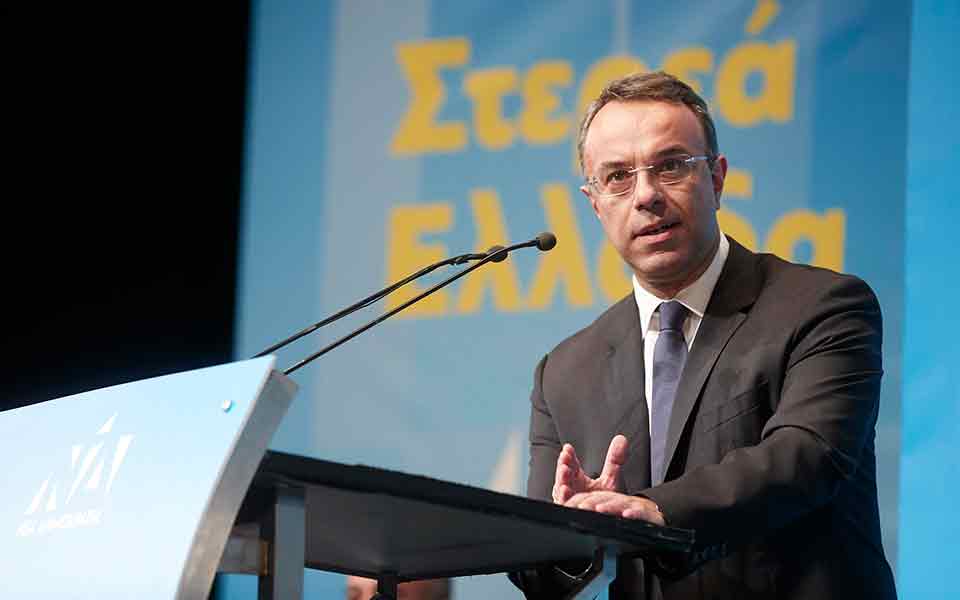Staikouras calls for eurozone solidarity

In an article published in Tuesday’s Kathimerini, Finance Minister Christos Staikouras calls on his colleagues in the Eurogroup council of eurozone finance ministers to show solidarity as they convene on the same day and approve “a catalytic move that will offer a strong injection of liquidity to the economy.”
The eurozone ministers must on Tuesday seek out difficult compromises regarding the support plan for the member-states battered by the coronavirus pandemic. Monday’s Eurogroup Working Group showed some distance between the governments of the European North and those of the South, regarding the financing terms from the European Support Mechanism. The former want to see some conditions, a lighter version of the terms imposed on countries during the debt crisis of the 2010s, which will be made stricter if the loan issued to a state exceeds 2 percent of its gross domestic product. The governments of the South reject conditional financing.
There has been an agreement in principle on the increase to the lending capacity of the European Investment Bank and the labor subsidy program SURE of the European Commission, which provides for the issue of loans worth 100 billion euros to member-states to support employment. However, any discussion on the mutualization of debt, such as a Eurobond, has been postponed for the future.
In his article in Kathimerini, Staikouras speaks in favor of debt mutualization, saying, “The enemy is common, so it requires common solutions.” He adds that “a catalyst move is required, to offer a strong boost of liquidity to national economies and to that of Europe, through the issue of a common European bond that would finance – possibly via a solidarity fund – the needs for facing the health crisis and the recovery of the day after.”
“The Eurogroup must today make decisions composing the different proposals on the table, decisions that must include the value of solidarity without coming up short in response to the demands of the times or showing reluctance. The ideal response cannot be any other than the strengthening of convergence and cohesion and the further empowerment of the economic architecture of Europe,” Staikouras wrote.





